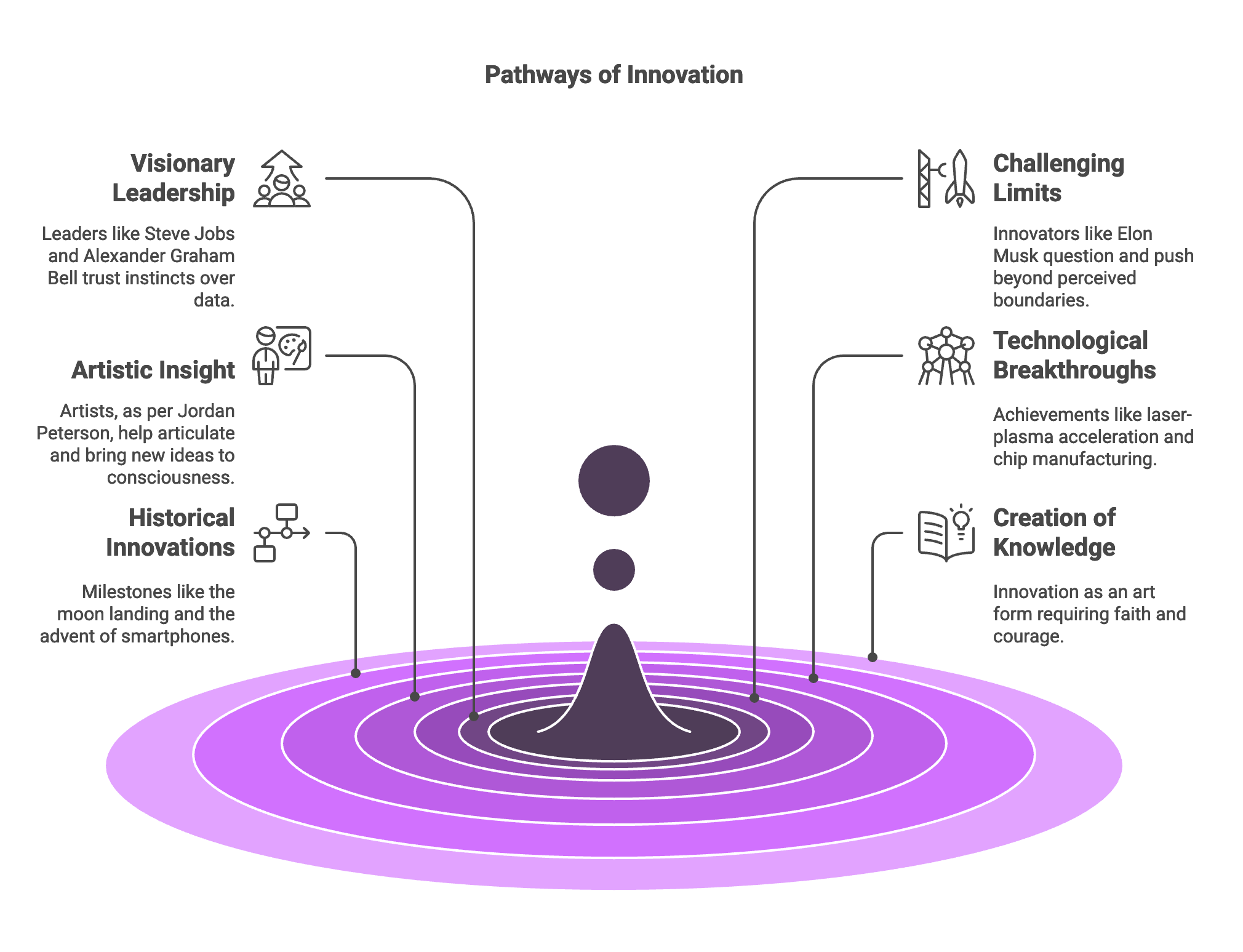Introduction
Innovation is the process of creating something new and substantially different from what exists. It involves moving from 0 to 1, as described by Peter Thiel in "Zero to One." This document explores the principles and philosophies that drive innovation and creativity, drawing insights from various thought leaders and examples.

The Nature of Innovation
- Singular Creation: Innovation is about creating something new, not merely adding to what already exists. It requires a shift from linear to vertical growth.
- Rejecting Realism: Innovators often reject conventional wisdom and realism. They pursue what seems impossible, pushing beyond the current limits of knowledge and understanding.
Key Philosophies
- Vision Over Market Research: As illustrated by Steve Jobs, true innovation often comes without traditional market research. Visionaries like Alexander Graham Bell and Jobs himself trusted their instincts over data.
- Challenging the Impossible: Elon Musk exemplifies this by questioning the limits of possibility and encouraging a mindset of "What would it take?" to achieve the seemingly impossible.
- Artistic Insight: According to Jordan Peterson, artists play a crucial role in articulating the unknown, bringing new ideas into the collective consciousness.
Examples of Achieving the Impossible
- Technological Breakthroughs: The development of laser-plasma acceleration in chip manufacturing demonstrates how overcoming perceived limits can lead to significant advancements.
- Historical Innovations: The moon landing, video calls, and smartphones were once deemed impossible but became realities through relentless pursuit and innovation.
The Role of Knowledge
- Creation of Knowledge: Innovation is akin to art, involving the creation of new knowledge. It requires faith and the courage to explore the unknown.
- Optimism and Knowledge: David Deutsch emphasizes that the future is unknowable because the knowledge that will shape it has yet to be created. Optimism and the pursuit of knowledge are essential to overcoming challenges.
Conclusion
Innovation requires a departure from conventional thinking and a willingness to embrace the unknown. By rejecting realism and pursuing the impossible, individuals and organizations can create groundbreaking advancements that redefine what is possible. The journey from 0 to 1 is marked by creativity, courage, and the relentless pursuit of new knowledge.
Pavi Singh is a reader-supported publication. To receive new posts and support my work, consider becoming a free or paid subscriber.
Understanding Innovation
Our greatest leverage in the age of AI....